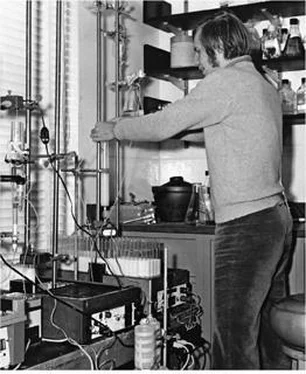James Watson - AVOID BORING PEOPLE - Lessons from a Life in Science
Здесь есть возможность читать онлайн «James Watson - AVOID BORING PEOPLE - Lessons from a Life in Science» весь текст электронной книги совершенно бесплатно (целиком полную версию без сокращений). В некоторых случаях можно слушать аудио, скачать через торрент в формате fb2 и присутствует краткое содержание. Жанр: Биографии и Мемуары. Описание произведения, (предисловие) а так же отзывы посетителей доступны на портале библиотеки ЛибКат.
- Название:AVOID BORING PEOPLE: Lessons from a Life in Science
- Автор:
- Жанр:
- Год:неизвестен
- ISBN:нет данных
- Рейтинг книги:5 / 5. Голосов: 1
-
Избранное:Добавить в избранное
- Отзывы:
-
Ваша оценка:
- 100
- 1
- 2
- 3
- 4
- 5
AVOID BORING PEOPLE: Lessons from a Life in Science: краткое содержание, описание и аннотация
Предлагаем к чтению аннотацию, описание, краткое содержание или предисловие (зависит от того, что написал сам автор книги «AVOID BORING PEOPLE: Lessons from a Life in Science»). Если вы не нашли необходимую информацию о книге — напишите в комментариях, мы постараемся отыскать её.
AVOID BORING PEOPLE: Lessons from a Life in Science — читать онлайн бесплатно полную книгу (весь текст) целиком
Ниже представлен текст книги, разбитый по страницам. Система сохранения места последней прочитанной страницы, позволяет с удобством читать онлайн бесплатно книгу «AVOID BORING PEOPLE: Lessons from a Life in Science», без необходимости каждый раз заново искать на чём Вы остановились. Поставьте закладку, и сможете в любой момент перейти на страницу, на которой закончили чтение.
Интервал:
Закладка:
The next morning, April 6, was my fortieth birthday, and were it
not for Liz by my side I would have been feeling sadly old. We pushed on toward Cambridge just before noon to give Liz time for a Saturday afternoon of housewares shopping in Harvard Square. Her first big purchase was an ironing board that I carried back from Dixon's Hardware. Later enriching our Appian Way flat was a second silver candlestick, a gift from the Society of Fellows to complement the one given to me upon my becoming a senior fellow. Another early purchase was a big cookbook by Julia Child, a local resident, which Liz bought upon the suggestion of the woman at the Radcliffe registrar's office who recorded the change of Liz's name from Lewis to Watson. Its recipes proved much more satisfying to Liz to master than those in her organic chemistry class. Inevitably my days as a beanpole were soon to end.
The Newsday article, April 6,1968
As soon as Liz had taken her final exams, we made the five-hour drive down to Cold Spring Harbor, where the Lab had rented a house on Shore Road to let Dad live with us over the summer. He had been hospitalized several times while with Betty but now was pain-free
enough to move in and out of our rented four-door Dodge. The new car spared Liz having to master jump-starting my MG TE The day after we arrived, another multicourse meal, this time featuring lobster américaine, was cooked by Francoise. While eating it, we were horrified to learn that Robert Kennedy had just been shot dead in Los Angeles. I had pinned my hopes on him to win the Democratic nomination for president. Not since World War II had daily life been so frequently overshadowed by such a string of woeful events.Nancy and Brook Hopkins began coming over to our Shore Road home to keep Dad company. Nancy was down for the summer with more than a dozen graduate students from MIT and Harvard, all focused on phage λ, working together in the vacant lab space underneath that of AI Hershey. Also about were Max and Manny Delbrück, back for Max's fourth consecutive year of teaching a course in the Animal House on the photosensitivity of the mold Phycorny ces. Instantly I sensed their approval of Liz, and relief that I no longer would suffer from chronic restlessness. Over July, Dad's condition worsened to require a twenty-four-hour home nurse. The chemotherapy he was receiving from the Lab's local doctor, Reese Alsop, was mainly palliative. By month's end, however, the pain proved too great to treat at home, and he was admitted to Huntington Hospital before being settled in a nearby nursing home. He would pass only a night there before pneumonia mercifully ended his agony.
Two days later, Betty joined me in Indianapolis and together we drove north some one hundred miles to the small town of Chesterton, near Lake Michigan, where our mother had been buried eleven years before. We would have met at the Chicago airport, but the Democratic convention was in progress and the city was full of antiwar protesters tangling with unsympathetic policemen. That day we wanted to think about Dad and Mother, not Vietnam. Meeting us the next morning at the cemetery were Mother's nearby Olvaney cousins, whom we'd seen much of in Michigan City before our university studies. After lunch we set off to see the little bungalow on Chicago's South Shore in which we had grown up. The drive later through Grant Park was eerily peaceful. The night before, Mayor Daley's police had violently dispersed protesters attempting to camp out in its open spaces, onto which
looked the windows of rooms in the tall hotels where the convention delegates were staying.Upon my return to Long Island, the three-week-long course on animal cells and viruses had started. There I first met the Liverpool-born, twenty-eight-year-old Joe Sambrook. He had flown east to lecture on pox viruses, the subject of his Ph.D. thesis at the Australian National University. Over the past two years at the Salk Institute, he had shown SV40 viral DNA integrated into the chromosomes of cancerous SV40-transformed cells. His work had been the heart of Dulbecco's recent June symposium talk, leading John Cairns to suggest I approach Joe about leading our DNA tumor virus effort. Quickly sensing Joe's high intelligence and ambition, I offered him a position starting the following summer. He quickly accepted and wrote up a big grant proposal to the National Cancer Institute (NCI), which would guarantee the Lab an infusion of $1.6 million over the proposed five years. Obtaining this money was virtually a foregone conclusion, as there then existed more cancer research money than good applicants to use it.
In fact, the only reviewer with any misgivings about the NCI grant was Harvard's Charlie Thomas. He wondered about the risk to humans from working with tumor viruses at the molecular level. Could exposure to the monkey virus SV40 cause cancer in humans? We replied that we would follow the same procedures used in the Salk lab of Renato Dulbecco, who'd apparently worked safely with SV40. Furthermore, we knew that fifteen years earlier, SV40 had been an inadvertent contaminant of early batches of the polio vaccine with which several million individuals had been vaccinated, with no elevated incidence of cancer.
Over the February 1969 Washington's Birthday weekend, we stayed at Redcote, the home of Edward Pulling, the newly elected president of the Long Island Biological Association. Though raised in Baltimore and educated at Princeton, Ed had been born in England and served as a British naval officer during World War I. Upon his recent retirement as founding headmaster of the Milbrook School, north of New York City, he and his wife, Lucy, moved to the estate she had inherited from her father, the J. P. Morgan banker Russell Leffingwell. When Liz and I had first visited their eighty acres of fields and woods the previous
summer, Ed pointed out the hidden ditch called a “ha-ha.” It kept Lucy's horses from coming too close to the patio where we had cocktails before supper. Then also present was the journalist turned canny investor Franz Schneider, almost eighty, and his wife, Betty, twenty-five years his junior. Earlier in life, Betty regularly flew their seaplane from the dock by their house to and from New York City. Later they had us meet Ferdinand Eberstadt, who owned a large estate on Lloyd Neck that he would soon give to the Fish and Wildlife Service as a nature preserve to prevent the building of a nuclear power plant on adjacent land.On each such visit down from Harvard, we eagerly followed the building of the new house we were to occupy upon Liz's graduation from Radcliffe. Initially we had planned to renovate the 175-year-old Osterhout Cottage, next to Blackford Hall at the heart of campus. The necessary alterations would require that I put up $30,000, then the value of my shares of the fast-growing pharmaceutical company Syn-tex, acquired after meeting the company's founder, Carl Djerassi, a chemist and the inventor of the birth control pill. At a Cleveland gathering of the American Chemical Society in May 1960 we had each received a $1,000 award. Upon returning to Harvard, I invested my prize money in Syntex shares, later using another $1,000 from my salary to buy more. Soon after the renovation of Osterhout started, however, the local contractor told us the deterioration was beyond repair. He offered to build for the same sum a new house almost identical to the one that was meant to emerge after the extensive renovation. We would get higher ceilings and central air-conditioning to boot. Our architect, Harold Edelman, saw only value in a brand-new home, and never would we regret the decision.
Over the spring break, Liz and I escaped the nationwide student unrest over Vietnam by going to the Caribbean, where my world renown paid off. Some ten years before, the wealthy European industrialist Axel Faber had set up a foundation to benefit Nobel laureates by subsidizing stays at exclusive hotels and resorts. For $10 per night, I had stayed at Le Richemond and the Hotel des Bergues in Geneva. Having found the Dorado Beach outside San Juan more geared to golf than swimming, we moved first to St. Thomas and from there to St. John's
Читать дальшеИнтервал:
Закладка:
Похожие книги на «AVOID BORING PEOPLE: Lessons from a Life in Science»
Представляем Вашему вниманию похожие книги на «AVOID BORING PEOPLE: Lessons from a Life in Science» списком для выбора. Мы отобрали схожую по названию и смыслу литературу в надежде предоставить читателям больше вариантов отыскать новые, интересные, ещё непрочитанные произведения.
Обсуждение, отзывы о книге «AVOID BORING PEOPLE: Lessons from a Life in Science» и просто собственные мнения читателей. Оставьте ваши комментарии, напишите, что Вы думаете о произведении, его смысле или главных героях. Укажите что конкретно понравилось, а что нет, и почему Вы так считаете.












